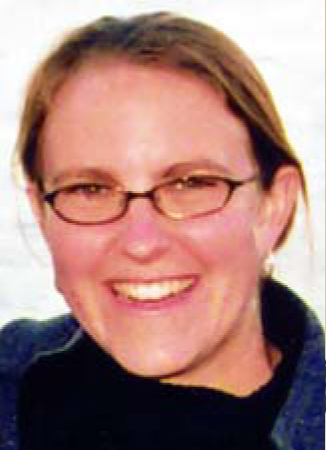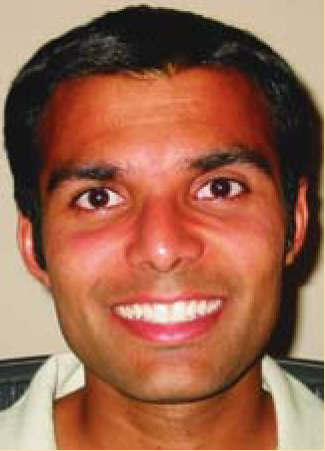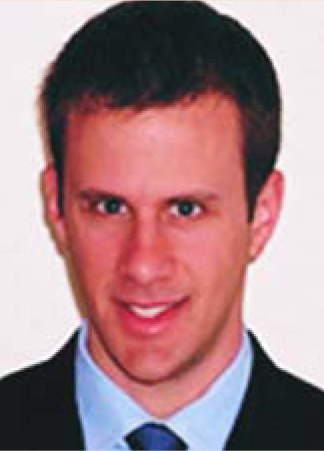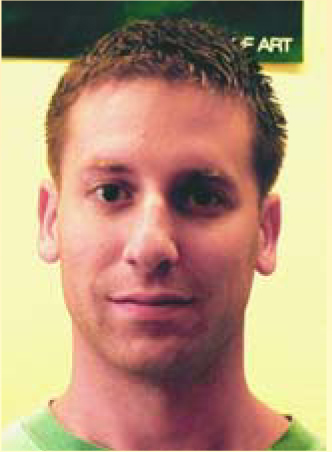Science Fellows Enter World of Policy, Politics
DOI: 10.1063/1.2155750
For Tegan Blaine, her yearlong stint as an American Institute of Physics (AIP) State Department fellow is much more than a chance to learn from the inside about the workings of international policies and politics. It is a chance, she said recently, to put into context her scientific interests, her love of the East African savanna, and her wish to use her skills in a way that can actually help people.
“It really is a crossroads,” Blaine said in early October as she was about to start her fellowship in the policy coordination and initiative office of the US State Department’s Oceans and International Environmental Affairs Office. “I know that I’m very interested in environmental issues in the developing world.”
Nearly 100 scientists are working in Congress and the executive branch this fall as part of the American Association for the Advancement of Science (AAAS) fellowship program, which began in 1973. This year Blaine and four other physical scientists are being sponsored by AIP, the American Physical Society (APS), the Materials Research Society (MRS), the Optical Society of America (OSA), and the American Geophysical Union (AGU).
For Blaine, who just received her PhD in oceanography from the Scripps Institution of Oceanography, the State Department fellowship is a perfect fit for her approach to life. She spent a year in Belgium when she was 17, and later spent several years in Tanzania, first as a Peace Corps volunteer teaching secondary school and then as an environmental project intern with the African Wildlife Foundation.
“I’m interested in project management and living in the developing world again, especially sub-Saharan Africa,” Blaine said. “But whether I can do the most good living there and managing projects on the ground, or whether I can do the most good in DC in more of a policy role, I’m not yet sure.” This is the year to find out, she added.
At the State Department, Blaine will help coordinate and manage projects on sustainable development of water resources in Ethiopia, Indonesia, and El Salvador. “I’m also going to be working on innovative financing mechanisms for water projects in the developing world and helping with the US involvement in an international water forum to be held in Mexico City next March.”
Zoo sparked interest
Blaine, an Ohio native, traces her interests in ecology and Africa to a program she attended at the Cincinnati zoo when she was in eighth grade. The instructor, who had been in the Peace Corps in Kenya, sparked her interest in dry environments, she said, and soon she was studying East African savannas. “I went into the Peace Corps in part because I feel strongly that if you’re going to choose to live in the United States, you first have to have an idea how other people in the world live.” There was also the personal challenge of living in Tanzania. “I wanted to see if I could survive in that part of the world.”
Vivek Mohta, APS’s congressional fellow for 2005–06, will spend the next year working on nuclear nonproliferation and biosecurity issues for Representative Adam Schiff (D-CA). “I chose Congressman Schiff because he’s been very outspoken in the past year or two about nonproliferation and he introduced an omnibus nonproliferation bill this year,” Mohta said. “He’s one of the few Democrats who is really trying to place nonproliferation in the broader context of a national security strategy.”
Mohta, who received his PhD in mathematics from Harvard University in June, said his interest in politics and policy began with the September 11th terrorist attacks. “That was my turning point,” he said. “I’d done a lot of community service before that, but I hadn’t been political. That was a transition that started me thinking about the impact my work would have on the world.”
He worked for a few months for the presidential campaign of Rep. Dennis Kucinich (D-OH), and then moved to Senator John Kerry’s (D-MA) campaign. “The more I’ve learned about the various policy issues that I was interested in, the more moderate I’ve become,” Mohta said.
Originally from Detroit, Michigan, Mohta spent this summer working as a science and technology policy fellow for the committee on international security and arms control at the National Academy of Sciences in Washington, DC. He was intrigued enough with the public policy work to continue with the APS fellowship. “I’ve found so many interesting challenges and interesting problems that I could sink my teeth into, challenges that have so much impact,” he said. “So I’m leaning toward continuing on in public policy after this, maybe working for a think tank or somewhere where I can bring together my operations research and my quantitative skills to work on public policy.”
Link on innovation
Jamie Link, a congressional fellow sponsored by OSA and the International Society of Optical Engineering, landed a job in the office of Sen. Joseph Lieberman (D-CT) working on manufacturing and innovation issues. “I was interested in innovation policy and maintaining US competitiveness,” Link said. Lieberman “has always had an interest in those issues and it was a very attractive office for me,” Link said.
Link, who has a PhD in chemistry from the University of California, San Diego, served for three years as a graduate fellow with the California Institute for Telecommunications and Information Technology doing basic research on chemical sensors. In addition to the research, Link said she became “involved in communicating with people up the chain in pushing the sensor technology through to market. I got to interact with people from government and industry and I got more of the big picture on how science gets implemented in society.” That, she said, got her interested in “being more active in that interface” so she applied for the congressional fellowship.
Link had been in Lieberman’s office only a few days when she spoke with Physics Today. “I’m feeling very green,” she said.
Benjamin Gross, who holds a PhD in physical chemistry from Columbia University, is a congressional fellow sponsored jointly by MRS and OSA. Gross studied US nanotechnology policy as a fellow at the National Academy of Sciences in the fall of 2004. During that fellowship he decided to pursue a career in science policy. Gross will spend the coming year working in the office of Rep. Rush Holt (D-NJ) looking at a range of issues including business development in the research community.
Josh Trapani, a paleontologist with a PhD in geology from the University of Michigan, was still working Capitol Hill in late September, looking for “a good fit” in a congressional office. “I’m looking for an opportunity to get involved in the right issue rather than being issue driven,” he said. His focus has been on the Senate side of the Capitol, he said, and while he is politically in the middle, most of his interviews have been with Democrats. “It’s the thing about the party in power versus the party that is a little more friendly toward science,” he said. Trapani’s interest in the AAAS fellowship program grew out of what he saw as a “huge disconnect between the scientific community and policy community. Neither side really understands the other and there have to be people who work as go-betweens.”

Blaine


Mohta


Link


Gross


Trapani

More about the authors
Jim Dawson, American Center for Physics, One Physics Ellipse, College Park, Maryland 20740-3842, US .




